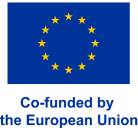Circular economy of batteries – future value chains, business models, technology, and legislation
AKILIT
Funders



Project information
Project duration
-
Funded by
European Structural Funds - European Regional Development Fund (ERDF)
Project funder
Funding amount
727 870 EUR
Project coordinator
University of Oulu
Contact information
Project leader
- Professor
Contact person
Project description
The transition to a carbon neutral society and circular economy causes changes in the economic life in Northern Finland, and it also requires increased product reuse and materials recycling. This change also creates new circular business opportunities for companies in Northern Finland. This project investigates how the battery and energy storage reuse and recycling can be developed in Northern Finland and what type of business opportunities and development activities the actors should focus on in the future. The project focuses on new circular value chains, business models, technology, and regulation and legislation related to the reuse and recycling of batteries. Especially electric vehicle (EV) and industrial batteries and circular processes related to them are in the project’s focus. In regulation and legislation, the Extended Producer Responsibility (EPR) and new EU Battery Regulation, that increases recycling requirements, are special interest areas. In addition, the regulation of battery reuse is investigated, as it is currently insufficiently regulated. The regulation needs for battery reuse are examined and developed in collaboration with companies.
The reuse of critical materials that are needed in battery manufacturing is becoming increasingly important due to the electrification of society. According to the World Economic Forum and the Global Batteries Alliance, the global demand for batteries will increase 14-fold by 2030 (compared to 2018). The growth is mainly driven by electric transport. Implementing circular value chains for batteries poses new requirements for different stakeholders in the battery value chain, such as manufacturers, producer organizations, and reverse logistics and recycling operators. It also involves new legislation and other supporting mechanisms. For example, the reuse of batteries involves many products ownership, regulation and safety issues that must be clarified. In addition, new battery materials and technologies (e.g., cobalt-free lithium-ion batteries, natrium-ion batteries) impact the value and recycling needs of current critical battery raw materials. The integration of new battery technologies into the battery value chain and their impacts on business models and battery reuse is not currently known.
This project aims to develop the reuse and recycling of batteries in Northern Finland and clarify where the companies should focus on in the future from the perspectives of regional growth, employment, and green transition. The project will benefit the businesses in Northern Finland by producing new information about the best applications for battery reuse and recycling, new technologies and business models, as well as the limitations and opportunities brought by new legislation and regulation. The results will show where the companies and other actors in the battery value chain in Northern Finland should focus on in the future. This will support the region's growth and employment and advance the green transition and the opportunities related to it.
